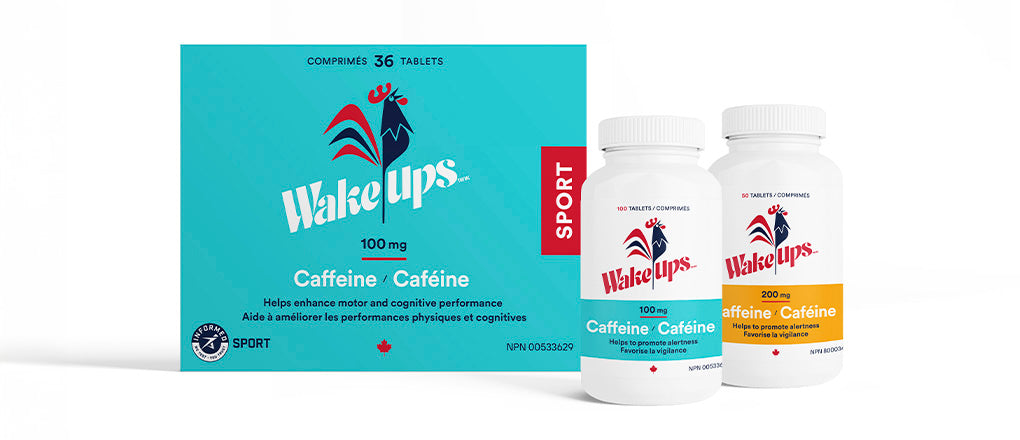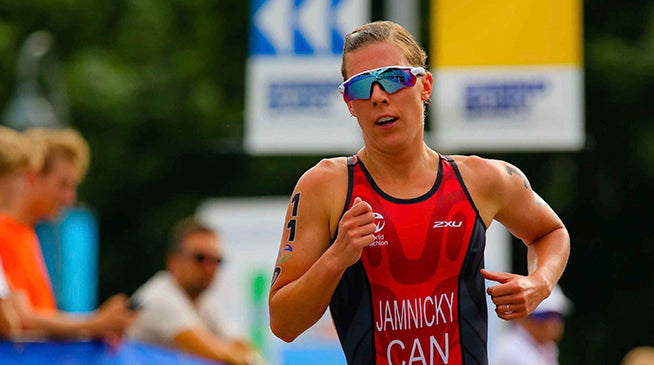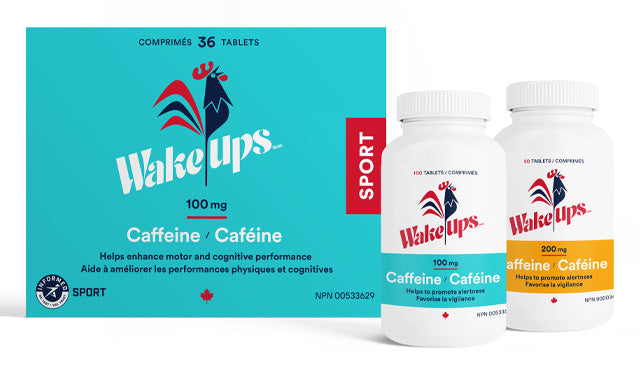Caffeine Science
Do lower doses of caffeine increase athletic performance more than higher doses? Does caffeine have a higher ergogenic effect on fast-twitch muscle used in high-intensity activity or slow twitch muscle used mostly in endurance exercise? If you’re thinking of incorporating caffeine into your training or if you already do, we encourage you to dive into the science.
|
How much caffeine is needed to optimise your workout / performance?Report Title: Exercise and Sport Performance with Low Doses of Caffeine Author: Lawrence L. Spriet Published: 2014, Journal of Sports Medicine Summary: The majority of research in caffeine and sport performance is centered around moderate to high levels of caffeine. This study explores the ergogenic effects of lower caffeine doses. When administered, low doses caffeine (3mg/kg bm) were found to produce a slight ergogenic effect without any of the unwanted side effects such as increased heart rate and higher blood lactate level. The author concludes that lower doses of caffeine (<3mg/kg bm) can increase athletic performance. Additionally, evidence supports that low doses of caffeine can have a positive ergogenic effect when taken before and during prolonged exercise. |
Caffeine versus Coffee: Impacts on your workoutReport Title: The Metabolic and Performance Effects of Caffeine Compared to Coffee During Endurance Exercise Authors: Adrian B. Hodgson, Rebecca K. Randall, Asker E. Jeukendrup Published: 2013, Public Library of Science Summary: In this study, the performance-enhancing effects of caffeine and coffee were explored using a time trial performance test with eight trained, male cyclists and triathletes. The athletes were organized into groups that consumed a caffeine drink (5mg of caffeine/kg of body weight), instant coffee, decaf and placebo. Results showed that time trials were significantly faster (and similar) for both caffeine and coffee when compared to placebo and decaf. |
|
Is caffeine more effective in endurance or for explosive exercising?Report Title: The Effect of Physiological Concentrations of Caffeine on the Power Output of Maximally and Submaximally Stimulated Mouse EDL (Fast) and Soleus (Slow) Muscle Authors: John Tallis, Rob S. James, Val M. Cox, Michael J. Duncan Published: 2012, Journal of Applied Physiology Summary: This study looked at the ergogenic effects of caffeine on slow twitch type muscles (the soleus) and fast twitch type muscles (the EDL), and how each muscle fiber type performs under various caffeine quantities in both maximal and submaximal exercise conditions. Results found that caffeine had a higher ergogenic effect on the slow twitch muscle – a muscle type used mostly in endurance exercise. Additionally, research showed no significant differences in effect between different concentrations of caffeine or between maximal and submaximal exercise conditions. The study suggests that caffeine will have a small increase on the power output in short term, high-intensity activity that typically uses fast-twitch type muscles. However, caffeine appears to have greater effect on power output in lower-intensity physical activity that is predominantly powered by slow-muscle fiber types. |
Trained versus Untrained Athletes: Who benefits most from caffeine and when?Report Title: Time of Day and Training Status Both Impact the Efficacy of Caffeine for Short Duration Cycling Performance Authors: James C. Boyett, Gabrielle E. W. Giersch, Christopher J. Womack, Michael J. Saunders, Christine A. Hughey, Hannah M. Daley and Nicholas D. Luden Publication: 2016, Nutrients MDPI Summary: This study uncovers how the time of day and training status impact the efficacy of caffeine in cyclists (short duration exercises). Twenty male cyclists, tiered into trained and untrained tertiles, completed 3km timed trial performances that were scheduled randomly during a morning or evening session. Prior to each time trial the subject consumed caffeine (6mg/kg of body weight) or a placebo. The study found that trained athletes were more likely to experience a greater ergogenic benefit from caffeine in the morning. The reverse was true for untrained subjects - they had better performance times with caffeine in the evening. |
Are standardized guidelines for caffeine consumption in sport true for all athletes?Report Title: Are the Current Guidelines on Caffeine Used in Sport for Everyone? Inter-individual Variation in Caffeine Ergogenicity and a Move Towards Personalized Sports Nutrition. Authors: Dr. Craig Pickering, John Kiely Published: 2017, Journal of Sports Medicine Summary: Current guidelines recommend ingestion of 3-9mg of caffeine per kg approximately 60 minutes prior to exercise for athletic performance improvement. Evidence suggests that standardized guidelines are optimal for only a portion of the athlete population. Pickering and Kiely examine the impact of genetic variation on performance enhancement as mediated by individual genotype, environmental factors and the legacy of prior experiences. Having a clearer understanding of the factors behind the individual variation potentially facilitates a more individualized and context-specific customization of caffeine ingestion guidelines, specific to an individual's biology, history, and competitive situation. |







